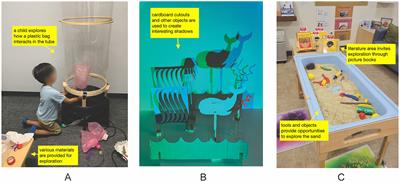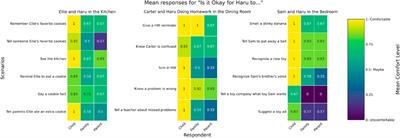ORIGINAL RESEARCH
Published on 18 Mar 2025
Human-centered design and early evaluation of an interface for mobile-manipulator-mediated pediatric occupational therapy
doi 10.3389/frobt.2025.1520216
- 446 views
1,202
Total downloads
9,553
Total views and downloads
Submit your idea
Select the journal/section where you want your idea to be submitted:
ORIGINAL RESEARCH
Published on 18 Mar 2025
BRIEF RESEARCH REPORT
Published on 08 Oct 2024

ORIGINAL RESEARCH
Published on 29 Jul 2024
ORIGINAL RESEARCH
Published on 21 Mar 2024


Manuscripts can be submitted to this Research Topic via the main journal or any other participating journal.
Submit your idea
Select the journal/section where you want your idea to be submitted: